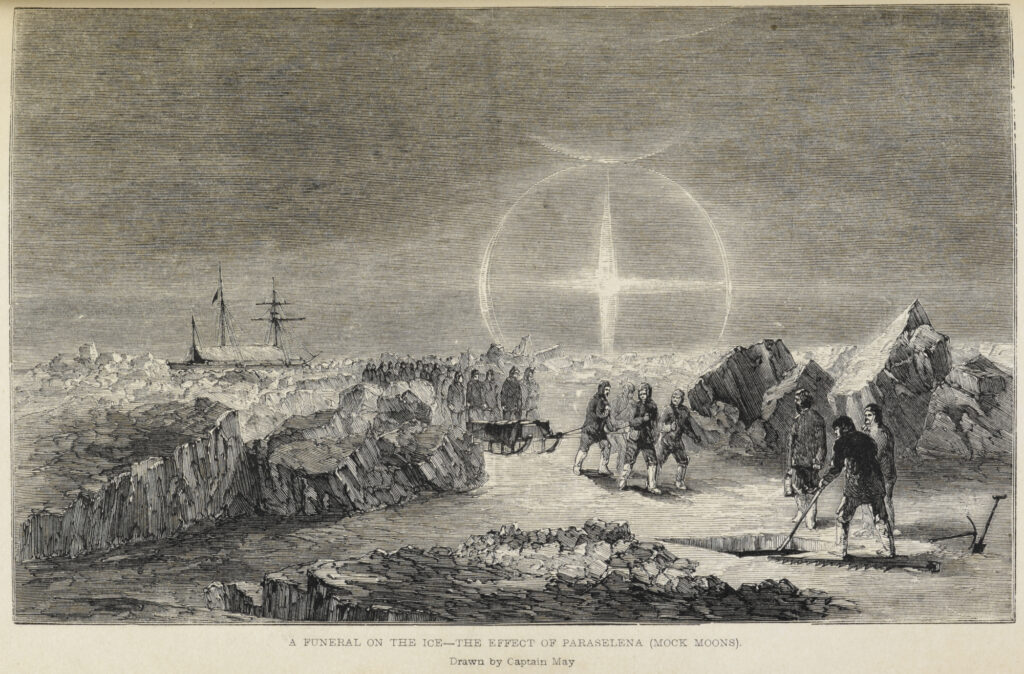Out of the window,
Wallace Stevens, “Domination of Black”
I saw how the planets gathered
Like the leaves themselves
Turning in the wind.
I saw how the night came,
Came striding like the color of the heavy hemlocks
I felt afraid.
And I remembered the cry of the peacocks.
This post was a project that was started originally started in 2022, and which I’m now revisiting as I restore various parts of this site.
Recently I came across the Gygax 75 Challenge, which is a worksheet designed to create your fantasy own world in 5 weeks. It seems like a cool idea and so I decided to give it a try.
Each week provides a short list of tasks. The tasks for week 1 were to write up a few bullet points providing a pitch for the setting, as well as to collect some sources of inspiration. I’ve decided to call this setting The Northern Strata, but the name is subject to change.
I have B/X or Old School Essentials in mind as the background since that’s what I’ve been playing most recently, but pretty much any OSR system could work with this.
The Northern Strata
The Pitch
- An arctic tundra at the edge of civilization. Steep mountains and valleys filled with unknown eldritch horrors. There are only a few outposts at the edges, dependent on supplies delivered by land from the south.
- Sanity is just as important as health. Extended stays wear away at your mind, eventually causing a condition known as division. Short-term effects include dizziness, nausea, vomiting, and loss of direction. Over the long-term, this causes one’s body to reject their organs, resulting in strange transformations.
- The world is made of plateaus. Plateaus are regions defined less by strict borders than by functional territorialities. Territories are defined not through physical spaces but through milieus and rhythms, such as a bird’s melody or a drinking song. Land is territory that has been stockpiled and appropriation of labour as profit.
- The gods are dead. Two hundred years ago, the wizard philosophers waged war against the gods, beating them into a lifeless pulp. They left only one god alive, transforming him into a giant lobster. The wizard philosophers have since claimed nominal rulership, but it is an open secret that they follow instructions of the poets.
- You are what you carry. Your class is tied to a specific item, such as a holy symbol, sword, or book. Lose that item and you lose your powers. Gain new items and your powers are increased.
- Everything is a machine, and not all life is organic. Elves and dwarves are not distinct species but professions/lifestyles. Dwarves are those that ceaselessly territorialize, carving striated spaces from disorganized matter. Elves endlessly grow trees and other arborescent structures, both mental and physical, and typically have roots growing in their own heads.
Sources of Inspiration
- A Thousand Plateaus (1980), by Gilles Deleuze & Felix Guattari. Provides the metaphysical framework in which the world is grounded. Also exists as an in-world text studied by scholars of different kinds.
- At The Mountains of Madness (1836), by H.P. Lovecraft. Captures a lot of the typical scenery in this region, as well as the mood. See also Beyond the Mountains of Madness (1999) scenario, written for Call of Cthulhu.
- Charles Lyell’s (1830) Principles of Geology. Sets out the geological foundations and laws guiding the world’s organization, including the extreme age of the earth and the processes of flow and sedimentation.
- The Frozen Frontier actual play series, ran by Neil Pass Erickson. This is a great example a long campaign focused on overland travel and exploration, and I want to borrow from the geographical aspects of the setting.
- Susan Howe and David Grubbs, “Souls of the Labadie Tract.” Provides record of the Labadists, a small but notable faction in this region, as well as insight into the historical archival practices of this region and the wind-chime sounds that are often heard while journeying.
- Baruch Spinoza (1677), Ethics. This small book is the closest thing to an official religious text, and is often found tucked into the cloaks of adventurers, at times at camp heard reading its passages by firelight.
- Friedrich Nietzsche (1883), Thus Spoke Zarathustra. An important historical text on the life and preachings of Zarathustra, one of earlier wizard philosophers who lived shortly after the death of the gods.
